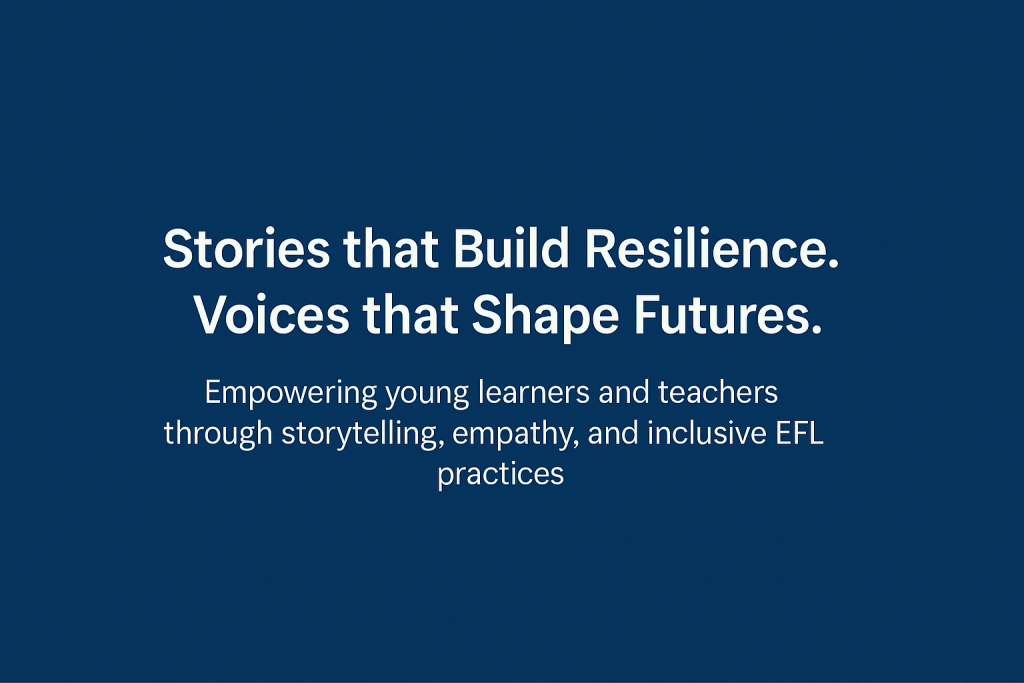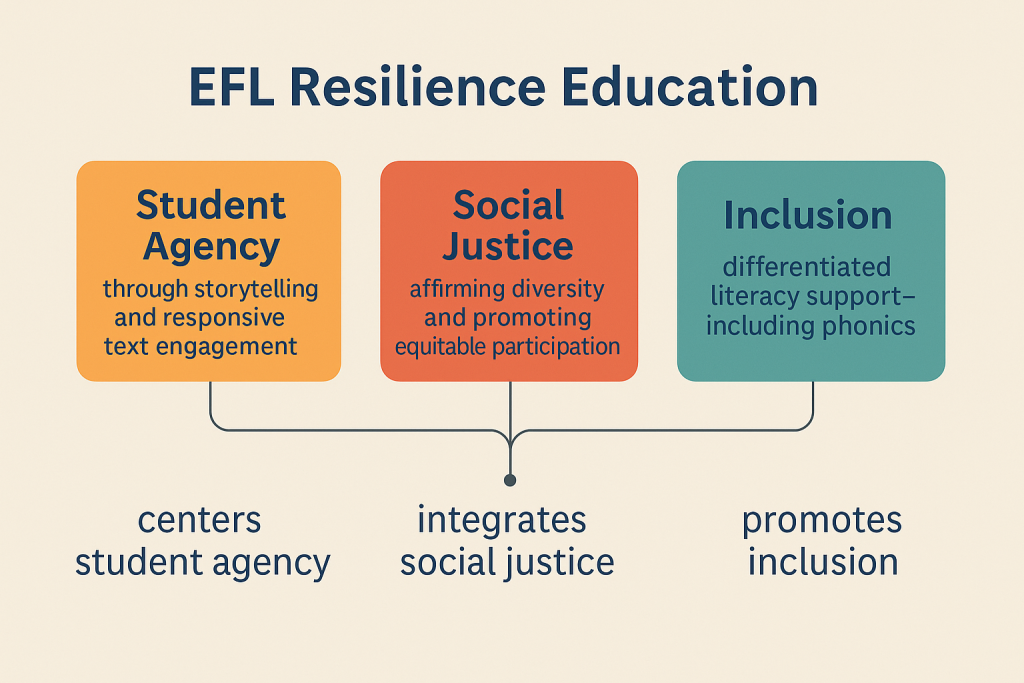Empowering pre-service EFL teachers and learners towards democratic futures
Project members: Rachelle Breuer, Anni Lenz, Bianca Roters (University of Education Ludwigsburg, Germany) & Julia Fuchs (Doris-Leibinger-Grundschule Ditzingen)
Narrating Futures of Well-Being in EFL Teacher Education provides the conceptual foundation for this project, which introduces Resilience Education in English as a Foreign Language (EFL) as a practice-oriented framework. This approach strengthens learners’ linguistic, emotional, and cognitive resilience by placing storytelling—oral, written, and digital—at the center of language learning. Grounded in social equity, it empowers all learners, regardless of cultural or linguistic background, to express themselves, share their experiences, and participate in meaningful communication. Central to this framework is a language of empathy and well-being and the powerful role that stories play in cultivating these capacities.
Through digital storytelling and multimodal texts, the project explores how narrative practices foster empathy, agency, democratic awareness, and early literacy. Drawing on the EMPATHICS model and research on learner and teacher agency, we show how reflective storytelling can help pre-service teachers envision futures of well-being in their own classrooms. Insights from a study on pre-service teachers’ personal and academic reading journeys (Breuer et al., in progress) illustrate how story-rich pedagogies can create learning environments in which resilience, belonging, and hopeful engagement with an unpredictable world can flourish.
Building on this foundation, EFL Resilience Education supports school students in developing linguistic, emotional, and cognitive resilience alongside a growth mindset. Rooted in principles of equity and inclusion, the project ensures that all learners can participate in meaningful communication, create and share their stories, and engage with diverse perspectives through inclusive reading practices. A key component is the use of digital storytelling and multimodal narratives that reflect diverse identities and open spaces for dialogue, empathy, and critical engagement.
The project also includes targeted support for phonological awareness and phonics instruction, enabling beginners and multilingual learners to strengthen foundational literacy skills. Rhythmic, sound-rich texts help students build decoding and word-recognition abilities, ensuring that early literacy development is closely connected to emotional engagement, creativity, and narrative meaning-making.
Integrating these perspectives in teacher education, pre-service EFL teachers are prepared through targeted learning arrangements to:
- understand how reading fosters both critical thinking and early literacy skills, such as phonological awareness and grapheme–phoneme correspondence (GPC)
- analyze diverse texts and digital tools for classroom use
- design, implement, and reflect on pedagogical practices that link (digital) storytelling, reading, student agency, and social justice
- engage with principles of inclusive and democratic education, thereby incorporating empathy as a key element of classroom practice
Pre-service EFL teachers create and test learning scenarios that:
- support phonemic awareness and grapheme–phoneme correspondence through purposeful, sound-focused reading strategies
- incorporate multisensory activities, such as choral reading, sound-matching games, and visual phoneme–grapheme mapping, to scaffold decoding processes
- foster inclusive literacy in (multilingual) EFL classrooms
- use literature to spark dialogue and critical reflection, thereby exploring civic education and global issues, e.g. in picture books or graphic novels
This two-fold perspective ensures that school students benefit from creative, inclusive activities that build literacy, resilience, and democratic engagement. Moreover, EFL pre-service teachers are equipped to deliver effective, justice-oriented, and sound-based reading instruction as part of a (digital) storytelling unit.
In brief, this approach:
- centers student agency through storytelling and responsive text engagement
- integrates social justice by affirming diversity and promoting equitable participation
- promotes inclusion through fair access to tools, materials, and differentiated literacy support—including phonemic development and structured phonics progression from sound to meaning
News
project presentation:
Breuer, Rachelle & Roters, Bianca: Promoting Social Equity and Inclusion through Digitally-Mediated Reading Tasks in Pre-Service EFL Teacher Education. 21st ISATT Biennial Conference of the International Study Association on Teachers and Teaching, University of Glasgow (July 2025)
Anni, Lenz (2025). Promoting Meta-Linguistic and Metacognitive Abilities Using English Picture Books – a Comparative Analysis of Special Needs and Primary School EFL Contexts (unpublished MA thesis).

